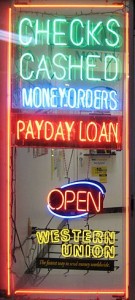 A recent amendment to the Bankruptcy laws requires everyone to take two credit counseling classes for Bankruptcy.
A recent amendment to the Bankruptcy laws requires everyone to take two credit counseling classes for Bankruptcy.
Two Credit Counseling Classes For Bankruptcy are required:
Pre-petition credit counseling: A credit counseling class must be taken BEFORE you file;
Post-filing credit counseling: A financial management class must be taken AFTER you file but before your case is closed.
Take Online Or By Phone.
The classes can be taken on-line or by phone. The first class must be taken before you file, or you will not qualify for bankruptcy. The second class is taken after you file but before discharge in a Chapter 7 Bankruptcy or plan confirmation in a Chapter 13 Bankruptcy.
We Make It Easy.
In both cases, we will provide you with a pre-paid, secure, link to take the courses. We also make sure the required certificates of completion are sent to the Court as necessary. You don’t have to worry about finding an approved course and using a credit card to pay for the course.
We Are Here To Help You.
Considering bankruptcy? Todd Murphy, a NJ Bankruptcy Attorney, is the New Jersey Bankruptcy Lawyer people have trusted for over 15 years for Chapter 7 Bankruptcy and Chapter 13 Bankruptcy. Our office is conveniently located to serve all of Essex County, Bergen County, Passaic County, Hudson County, Union County, Morris County, and Middlesex County.

 Payday loans are indeed the most despicable loans one can get and now online payday loan lending is one of the fastest growing areas of lending.
Payday loans are indeed the most despicable loans one can get and now online payday loan lending is one of the fastest growing areas of lending.




